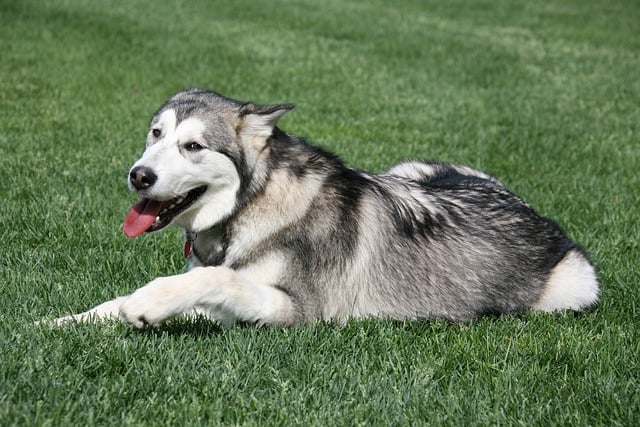
What is glaucoma in a dog?
You might notice your dog squinting more at mealtime or avoiding bright sunlight—these small changes could be early signs of a serious eye condition.
When we joyfully welcome a puppy into our lives, it is like a warm beam of light illuminating every corner of our life. However, one day, when we find patches of hair loss, red spots, and even dandruff under the puppy's originally smooth and shiny fur, and it is diagnosed with ringworm, worry and distress immediately well up in our hearts. Ringworm not only makes the puppy uncomfortable physically but may also affect its healthy growth. As owners, helping the puppy fight against ringworm is not only a responsibility but also a direct manifestation of our love for it. This battle between humans and the disease requires us to invest patience and care.
Ringworm is a skin disease caused by a fungal infection. This fungus has strong vitality and can survive in the environment for a long time. There are several reasons why puppies are prone to ringworm infections. Firstly, their immune systems are not yet fully developed, so their resistance is relatively weak. Secondly, a damp and unhygienic living environment creates conditions for the growth of fungi. In addition, when a puppy is malnourished, lacks exercise, or comes into contact with animals suffering from ringworm, it is also highly likely to be infected.
Once we find that the puppy has ringworm, we should take it to a pet hospital for diagnosis in a timely manner. The doctor will accurately determine whether the puppy is infected with ringworm and the type of fungus through microscopic examination or fungal culture, so as to develop a targeted treatment plan. During the treatment process, we must strictly follow the doctor's instructions and never use medications on our own, so as not to delay the illness or cause harm to the puppy.
Local treatment is a commonly used method for treating ringworm. For mild cases of ringworm, topical antifungal medications can be used. Before applying the medication, the hair at the affected area needs to be shaved off. This not only allows the medication to penetrate better but also makes it easier to observe the changes in the condition. Then, gently wipe the affected area with normal saline or a pet-specific skin cleanser to remove the surface dandruff and scabs. After that, evenly apply the antifungal ointment or spray to the affected area, 1 to 2 times a day until the symptoms disappear. When applying the medication, be gentle to avoid hurting the puppy. Some puppies may resist due to discomfort. We can soothe them softly or give them some snacks as rewards to make them cooperate with the treatment.

If the puppy's ringworm symptoms are more severe or the local treatment is not effective, the doctor may recommend systemic treatment, that is, oral antifungal medications. These medications need to be used strictly according to the doctor's prescription and dosage. Overdosing may cause damage to the puppy's organs such as the liver and kidneys. During the medication period, take the puppy to the hospital for reexamination regularly to monitor the efficacy of the medication and any adverse reactions. In addition, to improve the puppy's immunity, some nutritional supplements, such as vitamin B and lecithin, can be given to the puppy under the guidance of the doctor.
In addition to drug treatment, improving the puppy's living environment is also crucial. The ringworm fungus likes to grow in a damp and dark environment. Therefore, keep the puppy's living environment dry and well-ventilated, and regularly clean and disinfect the doghouse, toys, feeding utensils, etc. You can use a pet-specific disinfectant, dilute it according to the instructions, or expose items like the doghouse to the sun to kill the fungus with ultraviolet rays. At the same time, provide the puppy with sufficient space for activities and let it get more sunlight. The ultraviolet rays in the sun can not only inhibit the growth of fungi but also promote the synthesis of vitamin D in the puppy, which helps to enhance its immunity.
During the process of treating the puppy's ringworm, nutritional support cannot be ignored. A healthy diet can provide the puppy with the energy to fight the disease. Choose high-quality dog food with a balanced nutrition for the puppy to ensure that it intakes enough protein, vitamins, and minerals. In addition, you can appropriately feed the puppy some nutritious foods, such as chicken breast, eggs, and salmon, to help it supplement nutrition and enhance its resistance.
Taking care of a puppy with ringworm is not only a battle against the disease but also a test of love and responsibility. During this process, we may feel tired and helpless, but as long as we see the puppy gradually recovering and becoming lively and lovely again, all the efforts will be worthwhile. Let us accompany the puppy through this difficult time with love and patience, help it regain health and happiness, and continue to write the warm story between us and the puppy.

You might notice your dog squinting more at mealtime or avoiding bright sunlight—these small changes could be early signs of a serious eye condition.

Let’s set the scene: It’s a sweltering Phoenix afternoon—105°F outside—and you rushed your 2-year-old Lab mix, Cooper, on a quick walk to “get it over with.”

Let’s get real: You’re in your Miami apartment, watching your 3-year-old Corgi, Loki, struggle to climb the stairs to your second-floor unit.

Many dog owners brush off occasional scratching as just “dog behavior,” but persistent itching often signals something more—like a food allergy.

You might first notice your dog scratching more than usual—chewing at their paws until the fur looks thin, or rubbing their face against the couch nonstop.

Let’s be real: You’re standing in your Chicago apartment, watching your 3-year-old Beagle, Max, huff and puff just to climb onto the couch.